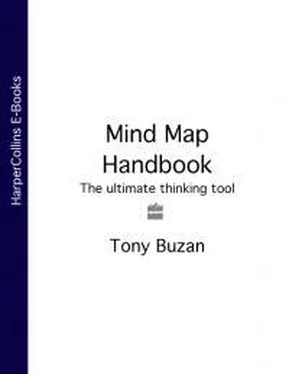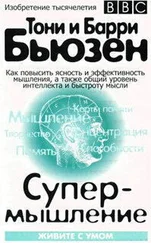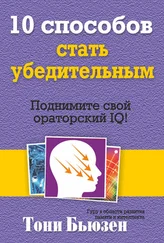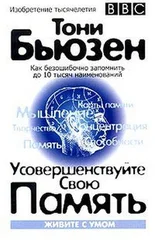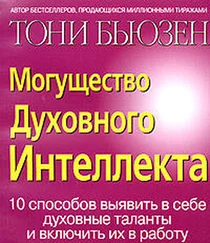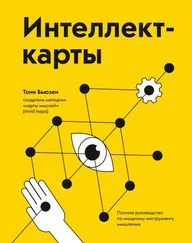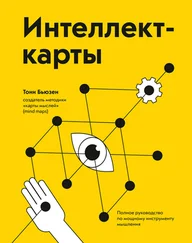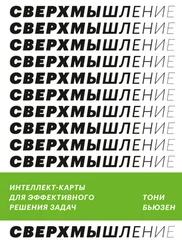For example if we take the word ‘catryof’ from Word Puzzle Number 15, and lay it out:

The possibility of making connections between the letters is much greater than if we leave them in a line. This allows the phenomenal associative power of your brain to find the possible good connections much more rapidly. If your first rearrangement isn’t successful (and it usually is!), quickly rearrange them again – the second time is nearly always successful. This is an amazingly useful technique for solving crossword anagrams!
Word Puzzle Number 18
Insert the word that completes the first word and begins the second.
INDIVI (__ __ __ __) ISM
Use Your Memory to Communicate
Remember to apply your knowledge of memory to the art of communication! Among the main principles you have learnt about your memory are that it remembers more of the beginnings; more of the ends; things which are associated; things which are imaginative/outstanding; finally, it remembers much better if review is practised, especially when that review is properly spaced.
When you are communicating, what is your prime goal? To have people understand and remember what it is you have said. To enable them to do this, you simply have to apply what you know:
Make sure that your communications start off with a bang – give them the key elements of what you are going to say, because they will remember these more easily.
End with a bang! Leave them on a ‘high’, because the Verbally Intelligent person – you – knows that they will remember the ends best.
Make sure you link your words and concepts both to each other, and to the people with whom you are communicating. This will enable them to remember the material better, and to make the most important memory link of all: the connection of what you have said to their own personal and professional lives.
Expand your own communication skills by using your giant imagination to give your words even more meaning. This will make them more memorable in the minds of the audience (and you more memorable as well!) and once again will enable them to remember what you said (and you!) much more easily.
If you are communicating in a situation which spans days, weeks, months or years, make sure you review for your audience as close to the one hour/one day/one week/one month/six months/long-term memory ideal pacing as you can. This will involve you in far less work, for you will not continuingly be having to drag back forgotten material from the Great Forgettary! And neither will they.
Use the Multi-ordinate Nature of Words
Use the multi-ordinate nature of words as a beacon in all your communication. Knowing that every word has unique and special meanings for each and every one of us, make sure you word all your important communications carefully, doing everything in your power to make the meaning clear.
Use Mind Maps
Once again, use Mind Maps to help prepare your successful verbal communications. When you have an important letter to write or telephone call to make, do a basic Mind Map of what you want to say first. This will help you get a clear picture of your goals for the letter or call. It will also allow you to keep track of where you are, to record additional thoughts that may leap into your mind while talking or writing, to be clearer in your message, and, therefore, to feel far more confident in the communication.
In addition to being a tremendous aid in the communication itself, keep the Mind Maps as a record of the communication. In this way they become a marvellous additional aid to your memory.
Observe Animals Communicating
As you now know, all animals are masterful communicators. Watch animals communicating with humans, with animals of their own kind, and with different animals. Observe the techniques they use for ‘checking out others’, for making new friends, for ‘defending their space’ and for getting what they want.
Whenever you see them being successful, check the techniques they used, and wherever you can and wherever appropriate, apply them, to increase your own communication skills as well as your Verbal Intelligence.
Expand Your Professional Vocabulary
One of the most important areas for you to be a communication expert is in your own job. Make a point, every week, of adding new words to your professional vocabulary. This will allow you to communicate more clearly and precisely, and will add significantly to the power your vocabulary gives you in the market place. Remember, the larger your vocabulary the higher your Verbal IQ; the higher your Verbal IQ the more successful you will be; the more successful you are, the more wealthy, in all senses of the word, you become!
Become a Direction Giver
Whenever there is an opportunity for you to help someone by giving directions, leap at it! By incorporating the principles of time, distance, important visual objects and direction, you will help others while, at the same time, developing the precision of your own imagination, the clarity and focus of your words, and your ability to convey any message to anybody. You will guide, in the best sense, other people and your own brain towards their desired goals.
Audit Yourself
On a regular basis, perhaps once every three or four weeks, spend a few minutes checking your own progress. Review and order your Verbal Intelligence Knowledge File, checking the number of new words you have acquired. Similarly, check how you are progressing towards your Verbal Intelligence goals; order and, perhaps, adjust your study area, making sure that it is even more inviting to you; and establish your next set of short, medium and long-term goals.
Doing this audit will take very little time. It will keep you constantly aware of the ‘Big Picture’ IQ development, will reinforce everything you have learnt, will inspire you with confidence, and will motivate and focus you for the continuing work, play and success ahead.
The ideas in this chapter are summarized in Plate 14.
Word Power Booster Number 9
This Word Booster section contains words describing specialists who assist in the maintenance of Physical and Mental Health.
OPTICIAN (op- tí -shun)
(a) A technician who grinds lenses
(b) Eye specialist who fits and prescribes spectacles
(c) Eye doctor/eye surgeon
(d) Bone doctor
OPTOMETRIST (op- tóm -etrist)
(a) A technician who grinds lenses
(b) Eye specialist who fits and prescribes spectacles
(c) Eye doctor/eye surgeon
(d) Bone doctor
OPHTHALMOLOGIST (op-thal- mól -ogist)
(a) A technician who grinds lenses
(b) Eye specialist who fits and prescribes spectacles
(c) Eye doctor/eye surgeon
(d) Bone doctor
DERMATOLOGIST (derma- tól -ogist)
(a) Joint doctor
(b) Bone doctor
(c) Skin doctor
(d) Foot doctor
PSYCHIATRIST (si- kía -trist)
(a) Doctor who studies general human sickness
(b) Medical specialist in mental ailments/emotional problems
(c) One who studies the human mind, its functions and behaviours
(d) Hypnotist
PSYCHOLOGIST (sy- kólo -gist)
(a) Doctor who studies general human sickness
(b) Medical specialist in mental ailments/emotional problems
(c) One who studies the human mind, its functions and behaviours
(d) Hypnotist
OSTEOPATH ( ostéo -path)
(a) Bone doctor
(b) Witch doctor
(c) Ear, eye, nose and throat specialist
(d) Specialist in ageing
Читать дальше
